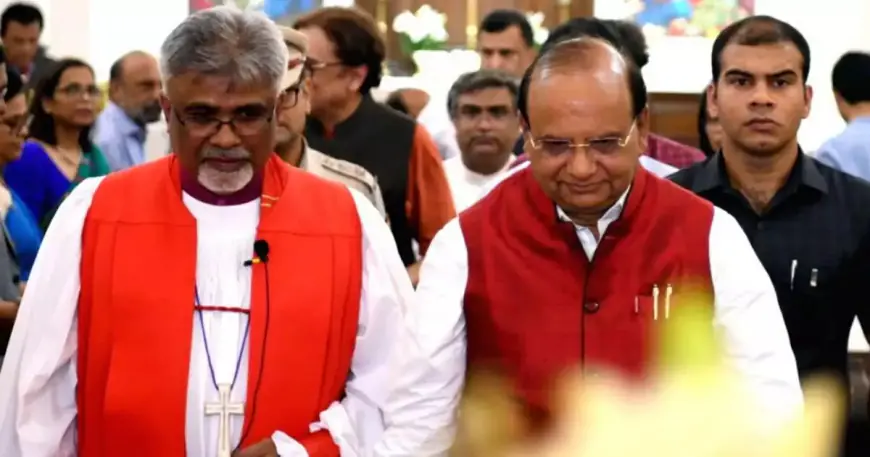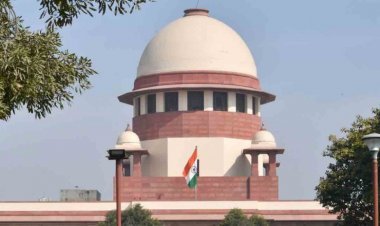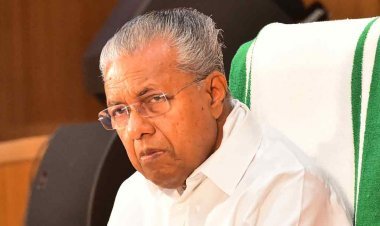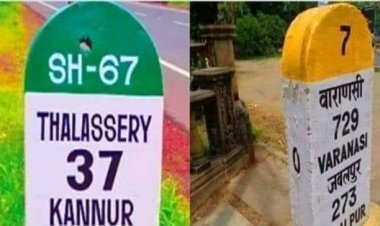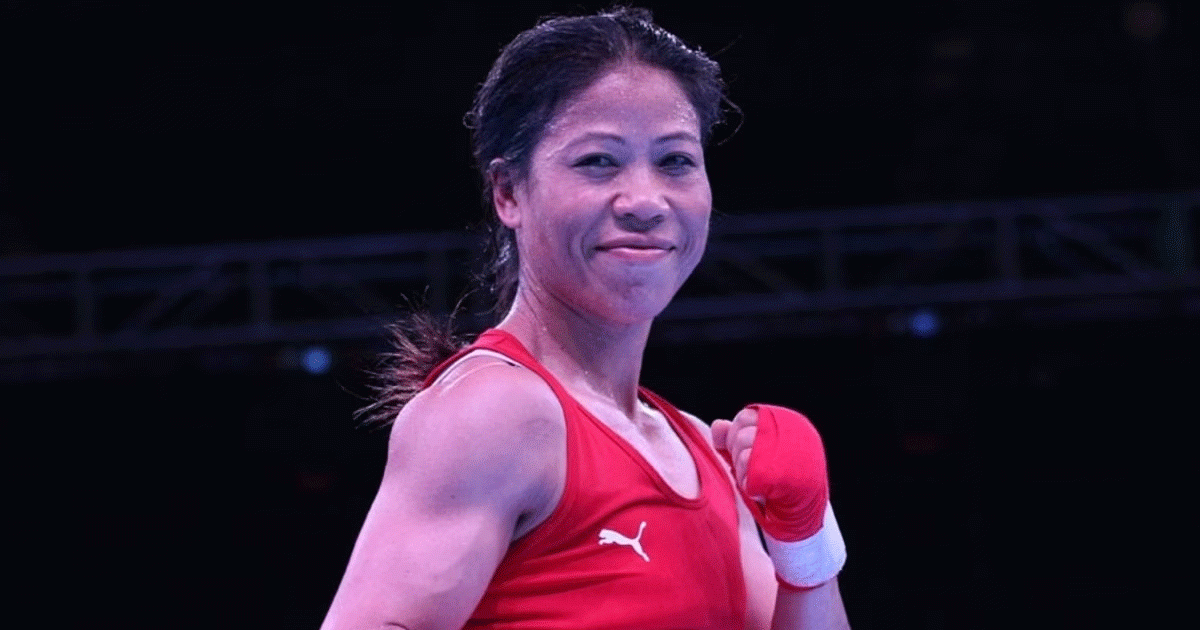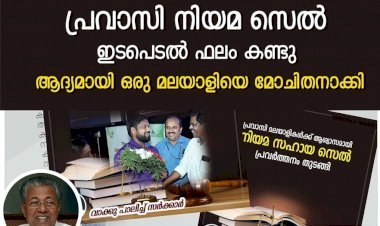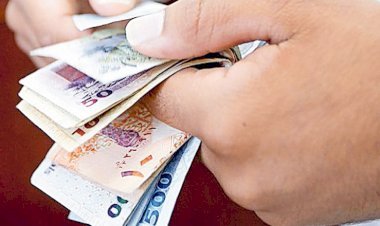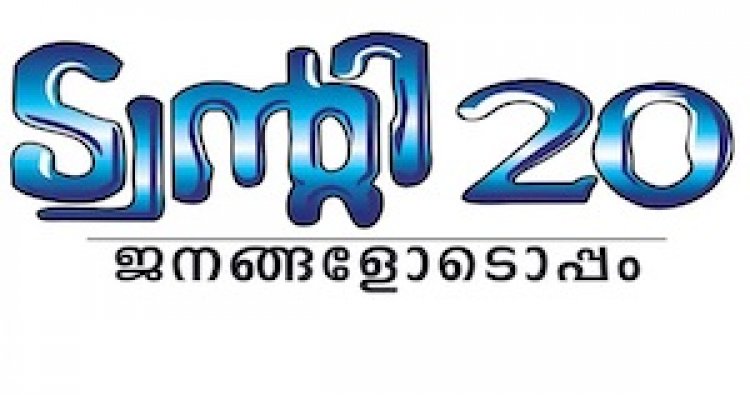NEW RETURNS AND ASSESSMENT OF CHARITABLE TRUSTS
Definition of Charitable Purpose as per Section 2(15) of the Income Tax Act 1961
“charitable purpose” includes : relief of the poor, education, yoga, medical relief, preservation of environment (including watersheds, forests and wildlife) and preservation of monuments or places or objects of artistic or historic interest, the advancement of any other object of general public utility:
Provided that the advancement of any other object of general public utility shall not be a charitable purpose, if it involves the carrying on of any activity in the nature of trade, commerce or business, or any activity of rendering any service in relation to any trade, commerce or business, for a cess or fee or any other consideration, irrespective of the nature of use or application, or retention, of the income from such activity, unless—
(i) such activity is undertaken in the course of actual carrying out of such advancement of any other object of general public utility; and
(ii) the aggregate receipts from such activity or activities during the previous year, do not exceed twenty per cent of the total receipts, of the trust or institution undertaking such activity or activities, of that previous year;
1.2 Computation of Income
1.2.1 Income Fully Spent
|
Particulars |
Rs. Lacs |
|
|
Gross Receipts |
|
100 |
|
Less: Deduction u/s 11(1)(a) |
|
(15) |
|
Balance Income to be Applied |
|
85 |
|
Less: Income Applied |
|
|
|
Revenue Expenses |
70 |
|
|
Capital Expenses |
15 |
(85) |
|
Total Income |
|
Nil |
1.2.2 Accumulation for 1 Year
|
Particulars |
Rs. Lacs |
|
|
Gross Receipts |
100 |
|
|
Less: Deduction u/s 11(1)(a) |
(15) |
|
|
Balance Income to be Applied |
85 |
|
|
Less: Income Applied |
||
|
Revenue Expenses |
50 |
|
|
Capital Expenses |
25 |
(75) |
|
Balance Income |
10 |
|
|
Less: Acc. & set apart – Exp 2 to Sec 11(1)(a) for 1 year |
10 |
|
|
Total Income |
Nil |
|
1.2.3 Accumulation for 5 Years
|
Particulars |
Rs. Lacs |
|
|
Gross Receipts |
100 |
|
|
Less: Deduction u/s 11(1)(a) |
(15) |
|
|
Balance Income to be Applied |
85 |
|
|
Less: Income Applied |
||
|
Revenue Expenses |
40 |
|
|
Capital Expenses |
10 |
(50) |
|
Balance Income |
35 |
|
|
Less: Acc. & set apart – Exp 2 to Sec 11(2) for 5 years |
(35) |
|
|
Total Income |
Nil |
TAX DEDUCTED AT SOURCE (TDS) MAINLY
APPLICABLE TO CHARITABLE TRUSTS
2.1 Section 192 Vs 194J of the Income Tax Act 1961
2.1.1SECTION 192 – TDS ON SALARY
Any person responsible for paying any income chargeable under the head “Salaries” shall, at the time of payment, deduct income-tax on the amount payable at the average rate of income-tax computed on the basis of the rates in force for the financial year in which the payment is made, on the estimated income of the assessee under this head for that financial year.
2.1.2EMPLOYER -2(14) OF THE INCOME TAX ACT 1961
“employer” includes—
(i)in relation to an establishment which is a factory, the owner or occupier of the factory, including the agent of such owner or occupier, the legal representative of a deceased owner or occupier and where a person has been named as a manager of the factory under clause (f) of sub-section (1) of section 7 of the Factories Act, 1948 (63 of 1948), the person so named; and
(ii)in relation to any other establishment, the person who, or the authority which, has the ultimate control over the affairs of the establishment and where the said affairs are entrusted to a manager, managing director or managing agent, such manager, managing director or managing agent;
2.1.3EMPLOYEE -2(13) OF THE INCOME TAX ACT 1961
“employee” means any person (other than an apprentice) employed on a salary or wage not exceeding [twenty-one thousand rupees] per mensem in any industry to do any skilled or unskilled, manual, supervisory, managerial, administrative, technical or clerical work for hire or reward, whether the terms of employment be express or implied.
2.1.4 EMPLOYER EMPLOYEE RELATIONSHIP
The agreement binding both the employer and the employee is known as an employment contract.
To determine the existence of an employer-employee relationship, the four fold test is usually applied:
1.The selection and engagement of the employee;
2.The payment of wages/Salary
3.The power of dismissal
4. The employer’s power to control the employee on the means and methods by which the work is accomplished.
2.1.5 SECTION 194J- FEES FOR PROFESSIONAL OR TECHNICAL SERVICES
Any person, not being an individual or a Hindu undivided family, who is responsible for paying to a resident any sum by way of—
(a)fees for professional services, or
(b)fees for technical services, or
(ba) any remuneration or fees or commission by whatever name called, other than those on which tax is deductible under section 192, to a director of a company, or
(c)royalty, or
d) any sum referred to in clause (va) of section 28, shall, at the time of credit of such sum to the account of the payee or at the time of payment thereof in cash or by issue of a cheque or draft or by any other mode, whichever is earlier, deduct an amount equal to [two per cent of such sum in case of fees for technical services (not being a professional services), or royalty where such royalty is in the nature of consideration for sale, distribution or exhibition of cinematographic films and ten per cent of such sum in other cases,] as income-tax on income comprised therein.
2.1.6 PROFESSIONAL SERVICES
Professional services” means services rendered by a person in the course of carrying on legal, medical, engineering or architectural profession or the profession of accountancy or technical consultancy or interior decoration or advertising or such other profession as is notified by the Board for the purposes of section 44AA or of this section.
2.1.7 MEDICAL SERVICES BY DOCTORS ARE COMING UNDER TWO CATEGORIES:
1.Contract of Medical Service -As an employee under an employer.
2.Medical service of Contract for service as consultant in an institution or organization or a company .
2.1.8 REFERENCE TO CASE LAWS
2.1.8.1 MANIPAL HEALTH SYSTEMS V. CIT (2015) i)Fact of the Case:
A survey under section 133A was conducted at the business premises of the assessee on 26-9-2007 by the competent authority in order to ascertain the TDS compliance. The AO found that there were three categories of doctors, viz., A, B and C appointed by the assessee- Company and the assessee had made the TDS on the sum paid to the doctors under section 194J of the Act which deals with the TDS on payment of fees for professional or technical services.
A survey under section 133A was conducted at the business premises of the assessee on 26-9-2007 by the competent authority in order to ascertain the TDS compliance. The AO found that there were three categories of doctors, viz., A, B and C appointed by the assessee- Company and the assessee had made the TDS on the sum paid to the doctors under section 194J of the Act which deals with the TDS on payment of fees for professional or technical services.
ii. Karnataka High Court Decision:
The Karnataka High Court observed that contract between the assesse and doctors was not a “Contract of Service” but “Contract for service”. Thus the payment made to doctors by the hospital are covered under section 194J of the Income tax act, also as per the agreement made by the doctors and the assesse the doctors were not in employment and PF, ESI etc of the doctors was not done.
2.1.8.2 CIT (TDS) VS. APOLLO HOSPITALS INTERNATIONAL LTD IN 2010
i. Facts of the Case:
The appeal by the Revenue is directed against the order dated December 23, 2010, passed by the Income-tax Appellate Tribunal, Ahmedabad Bench “B” in Income Tax Appeal No. 3363 of 2008
The controversy is that whether as per the terms of the agreement with the doctors in question the deduction of tax was to be made as prescribed U/s 192 of the Act or as prescribed U/s 194J of the Act.
Undisputed fact is that there are two types of Agreements. One of the covenant is stated to be in the nature of employer/employee agreement and the other is stated to be Fixed Salary & Guarantee Money to Consultants (in short FGCs) contract.
ii. Decision of the Gujarat High Court
In the result, the appeal of the Revenue is dismissed.The Contract is a contract for service and is liable for TDS u/s 194J of the Income Tax Act 1961.
There is one more reason to arrive at the conclusion that the doctors in question were covered by the provisions of Section 194J of the I.T.Act is that the section is applicable in respect of fees for professions services. The assessee’s claim is that it was fees for professional services, on the other hand, the Assessing Officer’s view was that it was fees of services. That is why the Assessing Officer has proceeded with the finding that FGCs are in the nature of “Contract of Services”. But the assessee has tried to demonstrate that one of the clauses in the Agreement has specifically mentioned that a consultant doctor is entitled for fee for service. Therefore the doctors in question were covered by the provisions of Section 194J of the I.T.Act is that the section is applicable in respect of fees for professions services.
2.1.9 CIRCULAR NO. 5/2002, DATED 30-7-2002 AS PER INCOME TAX ACT 1961.
Question 26 : Whether payments made to a hospital for rendering medical services will attract deduction of tax at source under section 194J ?
Answer : Yes.
2.1.10 CONCLUSION
From the Case laws referred and as per section 192 and 194J it is inferred that :
1.Agreement of “contract for service” is liable to TDS under Section 194J of the Income Tax Act 1961 @10% in the case of medical services coming under the head Professional Services.
2.Agreement of “Contract of Service” is liable to TDS under section 192 of the Income Tax Act 1961 under the head “Salaries”.
2.2 SECTION 194R -DEDUCTION OF TAX ON BENEFIT OR PERQUISITE IN RESPECT OF BUSINESS OR PROFESSION.
2.2.1 INTRODUCTION
Any person responsible for providing to a resident, any benefit or perquisite, whether convertible into money or not, arising from business or the exercise of a profession, by such resident, shall, before providing such benefit or perquisite, as the case may be, to such resident, ensure that tax has been deducted in respect of such benefit or perquisite at the rate of ten per cent of the value or aggregate of value of such benefit or perquisite
Provided that in a case where the benefit or perquisite, as the case may be, is wholly in kind or partly in cash and partly in kind but such part in cash is not sufficient to meet the liability of deduction of tax in respect of whole of such benefit or perquisite, the person responsible for providing such benefit or perquisite shall, before releasing the benefit or perquisite, ensure that tax required to be deducted has been paid in respect of the benefit or perquisite.
Provided further that the provisions of this section shall not apply in case of a resident where the value or aggregate of value of the benefit or perquisite provided or likely to be provided to such resident during the financial year does not exceed twenty thousand rupees:
Provided also that the provisions of this section shall not apply to a person being an individual or a Hindu undivided family, whose total sales, gross receipts or turnover does not exceed one crore rupees incase of business or fifty lakh rupees in case of profession, during the financial year immediately preceding the financial year in which such benefit or perquisite, as the case may be, is provided by such person.
2.2.2 ILLUSTRATION 1 OF THE SECTION 194R
The free medicine sample may be provided by a company to a doctor who is an employee of a hospital.
The TDS under section 194R of the Act is required to be deducted by the company in the hands of hospital as the benefit/perquisite is provided to the doctor on account of him being the employee of the hospital.
Thus, in substance, the benefit/perquisite is provided to the hospital. The hospital may subsequently treat this benefit/perquisite as the perquisite given to its employees (if the person who used it is his employee) under section 17 of the Act and deduct tax under section 192 of the Act.
In such a case it would be first taxable in the hands of the hospital and then allowed as deduction as salary expenditure.
Thus, ultimately the amount would get taxed in the hands of the employee and not in the hands of the hospital. Hospital can get credit of tax deducted under section 194R of the Act by furnishing its tax return.
It is further clarified that the threshold of twenty thousand rupees in the second proviso to sub-section (I) of section 194R of the Act is also required to be seen with respect to the recipient entity.
2.2.3 ILLUSTRATION 2 OF THE SECTION 194R
Similarly, the tax is required to be deducted under section 194R of the Act if the benefit or perquisite is provided to a doctor who is working as a consultant in the hospital.
In this case the benefit or perquisite provider may deduct tax under section 194R of the Act with hospital as recipient and then hospital may again deduct tax under section 194R of the Act for providing the same benefit or perquisite to the consultant.
Similarly, the tax is required to be deducted under section 194R of the Act if the benefit or perquisite is provided to a doctor who is working as a consultant in the hospital.
In this case the benefit or perquisite provider may deduct tax under section 194R of the Act with hospital as recipient and then hospital may again deduct tax under section 194R of the Act for providing the same benefit or perquisite to the consultant.
2.2.4 CERTAIN CLARIFICATIONS GIVEN BY THE INCOME TAX DEPARTMENT
1. Is it necessary that the person providing benefit or perquisite needs to check if the amount is taxable under clause (iv) of section 28 of the Act, before deducting tax under section 194R of the Act?
Ans: No. The deductor is not required to check whether the amount of benefit or perquisite that he is providing would be taxable in the hands of the recipient under clause (iv) of section 28 of the Act. The amount could be taxable under any other section like section 41(1) etc. Section 194R of the Act casts an obligation on the person responsible for providing any benefit or perquisite to a resident, to deduct tax at source @ 10%. There is no further requirement to check whether the amount is taxable in the hands of the recipient or under which section it is taxable.
In this regard it may be highlighted that in the context of section 195 of the Act it is a requirement to know whether the payment made by the deductor is income in the hands of the non-resident recip ient as section 195 of the Act requires deduction on any other sum chargeable under the provisions of this Act at the rates in force. Thus there is requirement that deductor needs to verify if the “sum is chargeable under the Income-tax Act”. The term “ rate in force” is defined in clause (37A) of section 2 of the Act and it allows benefit of agreement under section 90 or section 90A of the Act, if eligible, in determining the rate of tax at which the tax is to be deducted at source. Hence, there is further requirement of checking if the amount is taxable under tax treaty and if yes, at what rate. Such a requirement is not there in section 194R of the Act, in the absence of these two terms in this section. Hence, there is no requirement for deductor to verify whether the amount is taxable in the hands of the recipient or section under which it is taxable.
It may also be highlighted that these two terms are also not there in section 194E of the Act and Hon ‘ ble Supreme Court in the case of PILCOM vs. CIT West Bengal (Civil Appeal No. 5749 of 20 12), held that tax is to be deducted under section 194E of the Act at a specific rate indicated there in and there is no need to see the taxability or the rate of taxability in the hands of the non-resident.
2. Is it necessary that the benefit or perquisite must be in kind for section 194R of the Act to operate?
Ans: Tax under section 194R of the Act is required to be deducted whether the benefit or perquisite is in cash or in kind. In this regard it is important to draw attention to the first proviso to sub-section (I) of section 194R of the Act, which reads as under:
“Provided that in a case where the benefit or perquisite, as the case may be, is wholly in kind or partly in cash and partly in kind but such part in cash is not sufficient to lI1eet the liability of deduction of tax in respect of whole of such benefit or perquisite, the person responsible for providing such benefit or perquisite shall, before releasing the benefit or perquisite, ensure that tax required to be deducted has been paid in respect of the benefit or perquisite: n This proviso clearly indicates the intent of legislature that there could also be situations where benefit or perquisite is in cash or the benefit or perquisite is in kind or partly in cash and partly in kind. Thus, section 194R of the Act clearly brings in its scope the situation where the benefit or perquisite is in cash or in kind or partly in cash or partly in kind.
This proviso clearly indicates the intent of legislature that there could also be situations where benefit or perquisite is in cash or the benefit or perquisite is in kind or partly in cash and partly in kind. Thus, section 194R of the Act clearly brings in its scope the situation where the benefit or perquisite is in cash or in kind or partly in cash or partly in kind.
3. Is there any requirement to deduct tax under section 194R of the Act, when the benefit or perquisite is in the form of capital asset?
Ans: As has been stated in response to question no 1, there is no requirement to check whether the perquisite or benefit is taxable in the hands of the recipient and the section under which it is taxable. 2 Further, courts have held many benefits or perquisites to be taxable even though one can argue that they are in the nature of capital asset. The following judgments illustrate this point:
Assessee entered into an agreement with’ J’ for purchase of a plot of land and certain amount was paid as earnest money. However, possession of land was not given to assessee and seller entered into another agreement with a third party to develop the said plot.
Assessee filed suit in which a consent decree was passed and in pursuance of same certain amount as paid to assessee. On appeal it was held that such sum received in pursuance of consent decree was liable to tax as business income under section 28(iv). Ramesh Babulal Shah v CIT (20 15) 53 taxmann.com 277 (Bom)
The amount representing principal loan waived by bank under one time settlement scheme would constitute income falling under section 28(iv) relating to value of any benefit or perquisite, arising from business or exercise of profession. CIT v Ramaniyam Homes (P) Ltd (2016) 68 taxmann.com 289 (Mad)
Value of rent free accommodation, furniture and fixtures given to director was held as taxable under section 28(iv). CIT v Subrata Roy (2016) 3851TR 547 (All)
Where a car was given to an assessee by his disciple, who had been benefited from his preaching, the value of car was held to be taxable in the hands of the assessee being a receipt from the exercise of the vocation carried on by him. CIT (Addl) v Ram Kripal Tripathi (1980) 125 ITR 408 (All)
The assessee was a director of a company. In terms of an agreement with the promoters, shares were allotted to the director. On these facts, it was held that the shares received by the director were benefit or perquisite received from a company by the director and it was a benefit assessable to tax. D. M. Neterwala v CIT (1986) 122 ITR 880 (Born)
Value of gift of land was held as a receipt by the assessee in carrying on of his vocation and was held as taxable. Amarendra Nath Chakraborty v CIT (1971) 79 ITR 342 (Cal).
Thus, it can be seen that the asset given as benefit or perquisite may be capital asset in general sense of the term like car, land etc but in the hands of the recipient it is benefit or perquisite and has accordingly been held to be taxable. In any case, as stated earlier, the deductor is not required to check if the benefit or perquisite is taxable in the hands of recipient. Thus, the deductor is required to deduct tax under section 194R of the Act in all cases where benefit or perquisite (of whatever nature) is provided.
4.Whether sales discount, cash discount and rebates are benefit or perquisite?
Ans: Sales discounts, cash discount or rebates allowed to customers from the listed retail price represent lesser realization of the sale price itself. To that extent purchase price of customer is also reduced.
Logically these are also benefits though related to sales/purchase. Since TDS under section 194R of the Act is applicable on all forms of benefit/perquisite, tax is required to be deducted. However, it is seen that subjecting these to tax deduction would put seller to difficulty. To remove such difficulty it is clarified that no tax is required to be deducted under section 194R of the Act on sales discount, cash discount and rebates allowed to customers.
There could be another situation, where a seller is selling its items from its stock in trade to a buyer. The seller offers two items free with purchase of 10 items. In substance, the seller is actually selling 12 items at a price of 10 items. Let us assume that the price of each item is Rs 12. In this case, the selling price for the seller would be Rs 120 for 12 items. For buyer, he has purchased 12 items at a price of 10. Just like seller, the purchase price for the buyer is Rs 120 for 12 items and he is expected to record so in his books. In such a situation, again there could be difficulty in applying section 194R provision. Hence, to remove difficulty it is clarified that on the above facts no tax is required to be deducted under section 194R of the Act. It is clarified that situation is different when free samples are given and the above relaxation would not apply to a situation of free samples. Similarly, this relaxation should not be extended to other benefits provided by the seller in connection with its sale. To illustrate, the following are some of the examples of benefits/perquisites on which tax is required to be deducted under section 194R of the Act (the list is not exhaustive):
•When a person gives incentives (other than discount, rebate) in the form of cash or kind such as car, TV, computers, gold coin, mobile phone etc.
•When a person sponsors a trip for the recipient and his/her relatives upon achieving certain targets
•When a person provides free ticket for an event
•When a person gives medicine samples free to medical practitioners.
5.Many a times, a social media influencer is given a product of a manufacturing company so that he can use that product and make audio/video to speak about that product in social media. Is this product given to such influencer a benefit or perquisite?
Ans: Whether this is benefit or perquisite will depend upon the facts of the case. In case of benefit or perquisite being a product like car, mobile, outfit, cosmetics etc and if the product is returned to the manufacturing company after using for the purpose of rendering service, then it will not be treated as a benefit/perquisite for the purposes of section 194R of the Act. However, if the product is retained then it will be in the nature of benefit/perquisite and tax is required to be deducted accordingly under section 194R of the Act.
6.Whether reimbursement of out of pocket expense incurred by service provider in the course of rendering service is benefit/perquisite?
Ans: Any expenditure which is the liability of a person carrying out business or profession, if met by the other person is in effect benefit/perquisite provided by the second person to the first person in the course of business/profession. Let us assume that a consultant is rendering service to a person “X” for which he is receiving consultancy fee. [n the course of rendering that service, he has to travel to different city from the place where is regularly carrying on business or profession. For this purpose, he pays for boarding and lodging expense incurred exclusively for the purposes of rendering the service to “X”. Ordinarily, the expenditure incurred by the consultant is part of his business expenditure which is deductible from the fee that he receives from company “X”. In such a case, the fee received by the consultant is his income and the expenditure incurred on travel is his expenditure deductible from such income in computing his total income. Now if this travel expenditure is met by the company “X”, it is benefit or perquisite provided by “X” to the consultant.
However, sometimes the invoice is obtained in the name of “X” and accordingly, if paid by the consultant, is reimbursed by “X”. In this case, since the expense paid by the consultant (for which reimbursement is made) is incurred wholly and exclusively for the purposes of rendering services to “X” and the invoice is in the name of “X”, then the reimbursement made by “X” being the service recipient will not be considered as benefit/perquisite for the purposes of section 194R of the Act. If the invoice is not in the name of “X” and the payment is made by “X” directly or reimbursed, it is the benefit/perquisite provided by “X” to the consultant for which deduction is required to be made under section 194R of the Act.
7.If there is a dealer conference to educate the dealers about the products of the company - Is it benefit/perquisite?
Ans: The expenditure pertaining to dealer/business conference would not be considered as benefit/perquisite for the purposes of section 194R of the Act in a case where dealer/business conference is held with the prime object to educate dealers/customers about any of the following or similar aspects:
(i)new product being launched
(ii)discussion as to how the product is better than others
(iii)obtaining orders from dealers/customers
(iv)teaching sales techniques to dealers/customers
(v)addressing queries of the dealers/customers
(vi)reconciliation of accounts with dealers/customers However, such conference must not be in the nature of incentives/benefits to select dealers/customers who have achieved particular targets.
Further, in the following cases the expenditure would be considered as benefit or perquisite for the purposes of section I 94R of the Act:-
(i) Expense attributable to leisure trip or leisure component, even if it is incidental to the dealer business conference. (ii) Expenditure incurred for family members accompanying the person attending dealer business conference (iii) Expenditure on participants of dealer/business conference for days which are on account of prior stay or overstay beyond the dates of such conference
8.Section 194R provides that if the benefit/perquisite is in kind or partly in kind (and cash is not sufficient to meet TDS) then the person responsible for providing such benefit or perquisite is required to ensure that tax required to be deducted has been paid in respect of the benefit or perquisite, before releasing the benefit or perquisite. How can such person be satisfied that tax has been deposited?
Ans: The recipient would pay tax in the form of advance tax payment challan and challan is the proof of evidence.
9.Section 194R would come into effect from the Ist July 2022. Second proviso to subsection (I) of section 194R of the Act provides that the provision of this section does not apply where the value or aggregate of value of the benefit or perquisite provided or likely to be provided to a resident during the financial year does not exceed twenty thousand rupees. It is not clear how this limit of twenty thousand is to be computed for the Financial Year 2022-23?
Ans: Threshold limit applicable for full financial year 2022- 23.
The benefit or perquisite which has been provided on or before 30th June 2022, would not be subjected to tax deduction under section 194R of the Act
10.Valuation of benefit/perquisite required to be carried out
Ans: The valuation would be based on fair market value of the benefit or perquisite except in following cases:-
(i)The benefit/perquisite provider has purchased the benefit/perquisite before providing it to the recipient. In that case the purchase price shall be the value for such benefit/perquisite.
(ii)The benefit/perquisite provider manufactures such items given as benefit/perquisite, then the price that it charges to its customers for such items shall be the value for such benefit/perquisite.
2.2.5 Conclusion of Section 194R
TDS Return In 26q Include Deduction Under Section 194R Of The Income Tax Act 1961.
Section 194R Of The Income Tax Act Is Applicable With Effect From 1st July 2022.
ITR 7
3.1 INTRODUCTION
ITR 7 is filed when a Trust, Company, Firm, Local authority, Association of Person (AOP) or Artificial Judicial Person and claims exemption under Section 139 (4A)(Trust etc ), Section 139 (4B)(Political Party etc ), Section 139 (4C) (Research Association etc) or Section 139 (4D) (University etc).
3.1.1 SEC 139 (4A)
Every person in receipt of income derived from property held under trust or other legal obligation wholly for charitable or religious purposes or in part only for such purposes, or of income being voluntary contributions referred to in sub-clause (iia) of clause (24) of section 2, shall, if the total income in respect of which he is assessable as a representative assessee (the total income for this purpose being computed under this Act without giving effect to the provisions of sections 11 and 12) exceeds the maximum amount which is not chargeable to income-tax, furnish a return of such income of the previous year in the prescribed form and verified in the prescribed manner and setting forth such other particulars as may be prescribed and all the provisions of this Act shall, so far as may be, apply as if it were a return required to be furnished under sub-section (1).
3.1.2 SEC 139 (4B)
The chief executive officer (whether such chief executive officer is known as Secretary or by any other designation) of every political party shall, if the total income in respect of which the political party is assessable (the total income for this purpose being computed under this Act without giving effect to the provisions of section 13A) exceeds the maximum amount which is not chargeable to income-tax, furnish a return of such income of the previous year in the prescribed form and verified in the prescribed manner and setting forth such other particulars as may be prescribed and all the provisions of this Act, shall, so far as may be, apply as if it were a return required to be furnished under sub-section (1).
3.1.3 SEC 139 (4C)
(4C) Every—
(a) research association referred to in clause (21) of section 10;
(b) news agency referred to in clause (22B) of section 10;
(c) association or institution referred to in clause (23A) of section 10; (ca) person referred to in clause (23AAA) of section 10;
(d) institution referred to in clause (23B) of section 10;
(e) fund or institution referred to in sub-clause (iv) or trust or institution referred to in sub-clause (v) or any university or other educational institution referred to in sub-clause (iiiab) or sub-clause (iiiad) or sub-clause (vi) or any hospital or other medical institution referred to in sub-clause (iiiac) or sub-clause (iiiae) or sub-clause (via) of clause (23C) of section 10;
(ea) Mutual Fund referred to in clause (23D) of section 10
(eb) securitisation trust referred to in clause (23DA) of section 10;
(eba) Investor Protection Fund referred to in clause (23EC) or clause (23ED) of section 10;
(ebb) Core Settlement Guarantee Fund referred to in clause (23EE) of section 10;
(ec) venture capital company or venture capital fund referred to in clause (23FB) of section 10;
(f) trade union referred to in sub-clause (a) or association referred to in sub-clause (b) of clause (24) of section 10;
(fa) Board or Authority referred to in clause (29A) of section 10;
(g) body or authority or Board or Trust or Commission (by whatever name called) referred to in clause (46) of section 10;
h) infrastructure debt fund referred to in clause (47) of section 10, shall, if the total income in respect of which such research association, news agency, association or institution, person or fund or trust or university or other educational institution or any hospital or other medical institution or trade union or body or authority or Board or Trust or Commission or infrastructure debt fund or Mutual Fund or securitisation trust or venture capital company or venture capital fund is assessable, without giving effect to the provisions of section 10, exceeds the maximum amount which is not chargeable to income-tax, furnish a return of such income of the previous year in the prescribed form29 and verified in the prescribed manner and setting forth such other particulars as may be prescribed and all the provisions of this Act shall, so far as may be, apply as if it were a return required to be furnished under sub-section (1).
3.1.4 SEC 139 (4D)
Every university, college or other institution referred to in clause (ii) and clause (iii) of sub-section (1) of section 35, which is not required to furnish return of income or loss under any other provision of this section, shall furnish the return in respect of its income or loss in every previous year and all the provisions of this Act shall, so far as may be, apply as if it were a return required to be furnished under sub-section (1).
3.2 LAST DATE FOR FILING ITR 7 FORM?
The due date for filing ITR-7 Form is different depending upon the audit of the accounts. Tax Assessees whose accounts are not required to be audited can file till 31st July 2022 for AY 2022-23.
While for audit cases, the due date is 31st October 2022 for FY 2021- 22 (AY 2022-23) And for Audit report is 30th September 2022.
AMENDMENTS IN FINANCE ACT 2022
4.1 PENALTY FOR PASSING ON UNREASONABLE BENEFIT TO TRUSTEE OR SPECIFIED PERSONS.
Twenty-first proviso to section 10(23C) w .e. f. A.Y. 2023-24 to provide that where such trust or institution has applied directly or indirectly income or any part of income for the benefit of any person referred to in section 13(3) of the Act, such income or part of income or property shall be deemed to be the income of such person of the previous year in which it is so applied.
As per the section 271AAE, if during any proceedings, it is found that any trust or institution has violated provisions of twenty-first proviso of section 10(23C) or section 13(1)(c) , the Assessing Officer may direct such person to pay by way of penalty equal to the amount of income applied by such trust or institution for the benefit of specified person where the violation is noticed first time and twice the amount of such income where the violation is noticed again in any subsequent year. Moreover, this penalty is leviable in addition to the penalty leviable, if any under any of the provisions of Chapter-XXI.
4.2.CANCELLATION OF REGISTRATION/APPROVAL IN CERTAIN CIRCUMSTANCES.
Before the amendment, the provisional approval or provisional registration or re registration or re-approval to trust or institution was granted in certain cases in an automated manner.
In order to ensure that non-genuine trusts or institutions do not get exemptions provided by these provisions, amended provisions of section 12AB (4) and (5) and fifteenth proviso to section 10(23C) w.e. f. 1st April, 2022. As per the amendment to section 12AB(4), where the registration or provisional registration has been granted to the trust or institution the commissioner may call for such documents and if not satisfied may cancel the registration/Approval.
4.3 PROVISIONS RELATED TO ACCUMULATION OF INCOME.
As per the provisions of section 11(2) if the trust or institution has not applied 85% of its income during any previous year, it is allowed to accumulate such income for a period not exceeding 5 years subject to filing of Form 10 before due date of filing return of income u/s.139(1) and investing or depositing such money in forms or modes specified u/s. 11(5) of the Act. Before the amendment, third proviso to section 10(23C) had similar provisions, but there was no provision to file Form 10 and invest money in forms or modes specified u/s.11(5) of the Act.
Hence to bring consistency between provisions under two regimes, explanation 3 to third proviso to section 10(23C) is inserted to provide for all conditions mentioned above for accumulation of income.
Also, explanation 5 inserted to third proviso to allow trust or institution to utilize the accumulated income for such other purpose in India in circumstances beyond control subject to fulfillment of specified conditions. These provisions are similar to provisions of section 11(3A) of the Act.
Moreover, as per the amendment to section 11(3) and as per explanation 4 inserted to third proviso to section 10(23C), if the accumulated income is not utilized for the purpose for which it is accumulated or set apart, it shall be deemed to be the income of the previous year being the last previous year of the period of which it is accumulated. Hence, now if the accumulated income is not applied within 5 years, the same shall be taxed in the 5th year itself. Before the amendment, it was taxed in the 6th year u/s.11(3) of the Act.
Further, before the amendment, many judicial rulings directed that the term “applied” need not necessarily imply that the amount should be actually spent. Even if the amount is irretrievably earmarked and allocated for charitable and religious purposes, it would amount to application of income. Hence to avoid litigation, it is clarified by inserting explanation 3 to section 10(23C) and explanation to section 11 w.e.f. A.Y. 2022-23 that any sum payable by trust under both the regime shall be considered as application of income in the previous year in which such sum is actually paid by it irrespective of the previous year in which the liability to pay such sum was incurred by such trust according to the method of accounting regularly employed by it.
Also, where during any previous year any sum has been claimed to have been applied by such trust, such sum shall not be allowed as application in any subsequent previous year. Hence as per the amendment, if the income is “actually” not paid, it will not be considered as application of income
4.4 CLARIFICATION ON COMPUTATION OF INCOME IN CASE OF DENIAL OF EXEMPTION.
If the trust or institution having commercial receipts in excess of 20% of the annual receipt in violation of the provisions of proviso to section 2(15) of the Act or in case of not getting the books of accounts audited or not filed return of income in accordance with provisions of section 139(4A) within time specified under that section, exemption was denied. But there was lack of clarity on computation of income in such circumstances.
Hence, section 13(10) to provide that in case of non-availability of exemption in circumstances mentioned above, its income chargeable to tax shall be computed after allowing deduction for the expenditure (other than capital expenditure) incurred in India for the objects of the trust or institution subject to fulfillment of following conditions.
MAINTENANCE OF BOOKS OF ACCOUNTS AND FILING OF RETURN BY THE TRUST OR INSTITUTIONS.
Section 12A(1)(b) provides that if the income of the trust or institution without giving effect to provisions of section 11 and 12 exceeds the maximum amount which is not chargeable to tax in any previous year, it is required to get its books of accounts audited. However, there was no specific reference for maintenance of books of accounts by such trust or institution. Hence, for proper implementation of both the exemption regime, the provisions of section 12A(1)(b) and tenth proviso to section 13(1)(c) w. e. f. A.Y. 2023-24 is amended to provide for maintenance of books of accounts and other documents in prescribed form and prescribed manner.
4.5 OTHER AMENDMENTS
Provisions of section 115TD, 115TE and 115TF amended w. e. f .A.Y. 2023-24 to make them applicable for 10(23C) of the Income Tax Act 1961.
FORMS FOR CHARITABLE TRUST
5.1 INTRODUCTION
|
FORMS |
SECTION |
RULE |
|
Form 10A |
10(23C),12AB,80G |
2C or 5CA or 11AA or 17A |
|
Form 10 AB |
10(23C),12AB,80G |
2C or 5CA or 11AA or 17A |
|
Form 10 AC |
10(23C), 12AB,80G |
2C or 11AA or 17A |
|
Form 10 AD |
10(23C),12AB,80G |
2C or 11AA or 17A |
|
10BD |
80 G |
18AB |
|
10BE |
80 G |
18AB |
5.2. WHO IS REQUIRED TO FILE FORM 10A
1. Trust/Institute already registered under the previous law effective immediately before this amendment (i.e., before 1st April 2021)
2. Trust/institute not registered under the previous law and want to make an application for fresh Registration or Approval under the new law or any other case then it required to file Form.
5.3 WHO IS REQUIRED TO FORM 10AB
1.Trust/ Institute registered or approved as per the new law effective from the 1stApril 2021 and the period of approval is due to
- a. Fund or trust or institution or any university or other educational institution or any hospital or other medical institution referred to in sub-clause (iv) or (v) or (vi) or (via) of section 10(23C) approved under the first proviso effective from 1st April 2021
- b. Trust/Institute registered under section 12AB
- c. Institution/fund approved under the proviso of clause (vi) of section 80G(5) effective from 1st April 2021
Time Limit: Trust/ Institute should apply at least 6 months prior to the expiry of the registration.
2. Trust/ Institute provisionally registered or Provisionally approved as per the new law effective from the 1st April 2021 and the period of Provisional approval is due to expire or activities has been commenced
a) Fund or trust or institution or any university or other educational institution or any hospital or other medical institution referred to in sub-clause (iv) or (v) or (vi) or (via) of section 10(23C) approved under the first proviso effective from 1st April 2021.
b) Trust/Institute registered under section 12AB.
c) Institutionapproved under the proviso of clause (vi) of section 8 0G(5) effective from 1st April 2021.
5.4. FORM 10AC
The Principal Commissioner of Income Tax or Commissioner of Income Tax will pass the order of granting the registration or approval in Form No. 10AC where the application is filed by an applicant in Form 10A.
As per Rule 2C, Rule 11AA and Rule 17A, on receipt of an application in Form No. 10A, the Principal Commissioner or Commissioner, authorised by the Board shall pass an order in writing granting approval or registration u/s 10(23C), u/s 80G and u/s 12A respectively in Form No. 10AC and issue a 16-digit alphanumeric Unique Registration Number (URN) to the applicants making application in Form 10A
5.5 FORM 10AD
As stated above, a trust or institution is required to make an application for renewal of registration or renewal of approval under section 10(23C), section 12AB, or section 80G in Form 10AB to the Principal Commissioner of Income Tax or Commissioner of Income Tax.
5.6 FORM 10BD
Form 10BD is applicable to all the entites (charitable institutions) having approval u/s 80G and u/s 35(1) of the Income Tax Act.
Every such entity shall have to file a Statement of Donation in Form 10 BD, providing the details of all the donations received during the financial year. Once the Statement of Donation is filed via Form 10BD, such entity shall provide Certificate of Donation in Form 10BE to all such donors whose donations were specified in the Statement of Donation.
The Principal Commissioner of Income Tax or Commissioner of Income Tax will pass the order of granting the registration or approval in Form No. 10AC where the application is filed by an applicant in Form 10A.
As per Rule 2C, Rule 11AA and Rule 17A, on receipt of an application in Form No. 10AB, the Principal Commissioner or Commissioner, authorised by the Board shall pass an order in writing granting approval or registration u/s 10(23C), u/s 80G and u/s 12A or rejection or cancellation respectively in Form No. 10AD and issue a 16-digit alphanumeric Unique Registration Number (URN) to the applicants making an application in Form 10AB.
What's Your Reaction?









